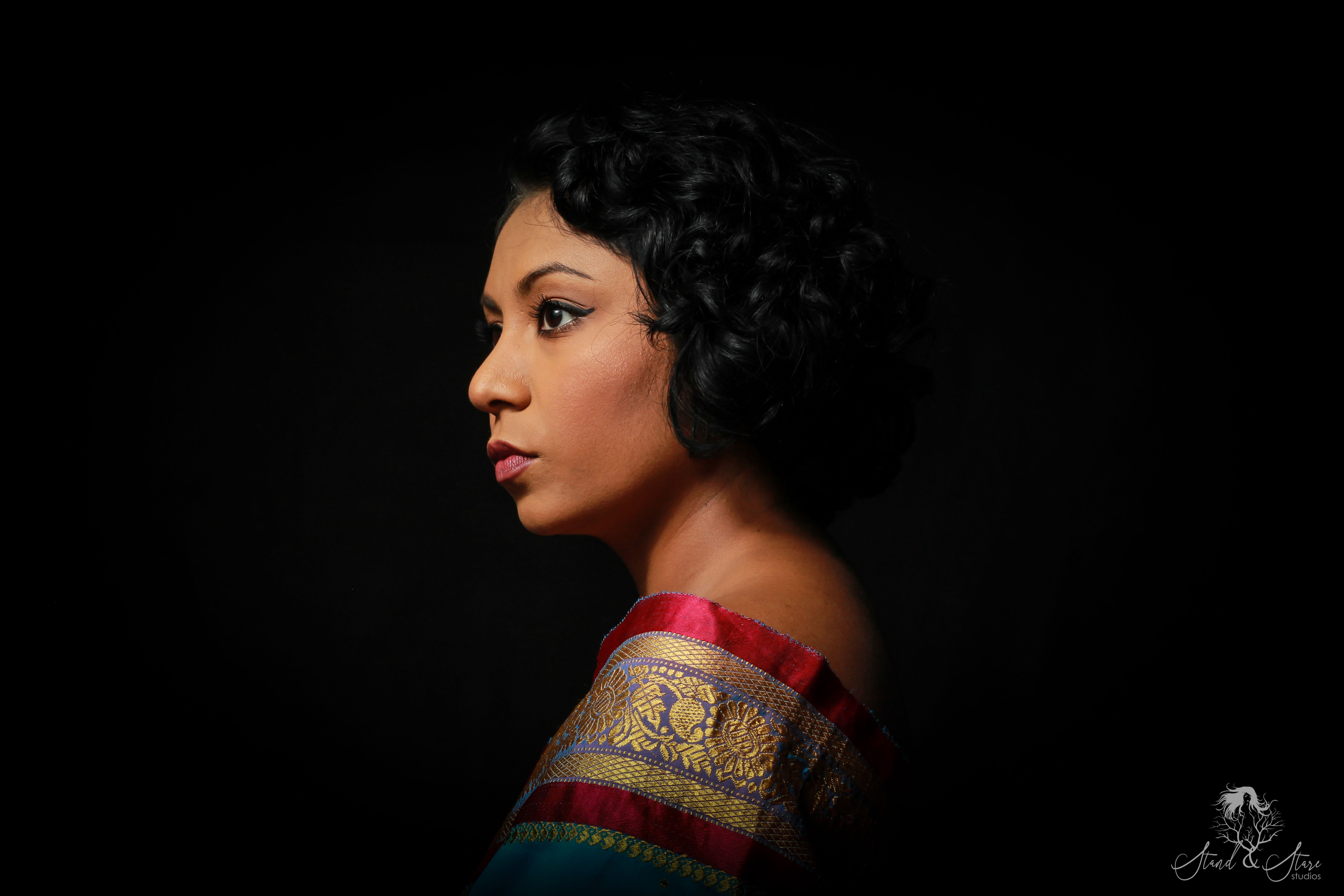
___
***Are you or someone you know in the global Tamil community doing great things? We'd love to feature them: FILL OUT THIS FORM ***
Network & collaborate with Tamil Changemakers from around the world. Request to join our private LinkedIn community here.
___
Colourism is as prevalent on the African continent as it is in other parts of the world. Most people associate the continent with darker skin tones, but in truth, we have a kaleidoscope of skin tones and ethnicities. Most are aware that South Africa’s diaspora include those whose ancestry is because of Indian Indenture from 1860 to 1914. Our Tamil population originated from many parts of South India. As a result, South Africa is home to the largest population of the Indian diaspora and a very large south and north Indian influence. Colourism plays its part in subtle and not-so-subtle ways in social constructs. Ravi Naidoo is a photographer and social activist who is raising awareness around colourism through her images accompanied by a narrative in her own words.
Note: South Africa’s official race classification labels those of Indian ancestry as ‘Indian’ which will include all heritage groups from both north and south of the sub-continent
Brown on Brown by Ravi Naidoo
Brown on brown is a visual exploration of my thoughts on colourism in the Durban Indian community. It is a rumination on the intra-racial animosity that stems from colourism, and a conscious contemplation on the experience of being brown skinned in a world that has been shaped by the preference for light skin and its effect on how we live our lives and essentially how we perceive and value ourselves.
Brown on brown is about prejudice that is lived, felt and perpetuated by people in our own community to the extent that it is deemed normal and acceptable and so is never challenged or changed. It frustrates me that as much progress as we have made as individuals, we are still actively holding each other back by clinging to our prejudices about skin colour.
The way we see the skin we live in, affects so much more than just beauty, it is a matter of dignity and self worth. Our worth is inextricably linked to skin complexion
The idea of being dark-skinned and beautiful is a concept that is foreign to the majority of Indian people. The preference for fair skin and the acceptance of ridiculing and demeaning those that are darker skinned are ways of existence that need to be questioned.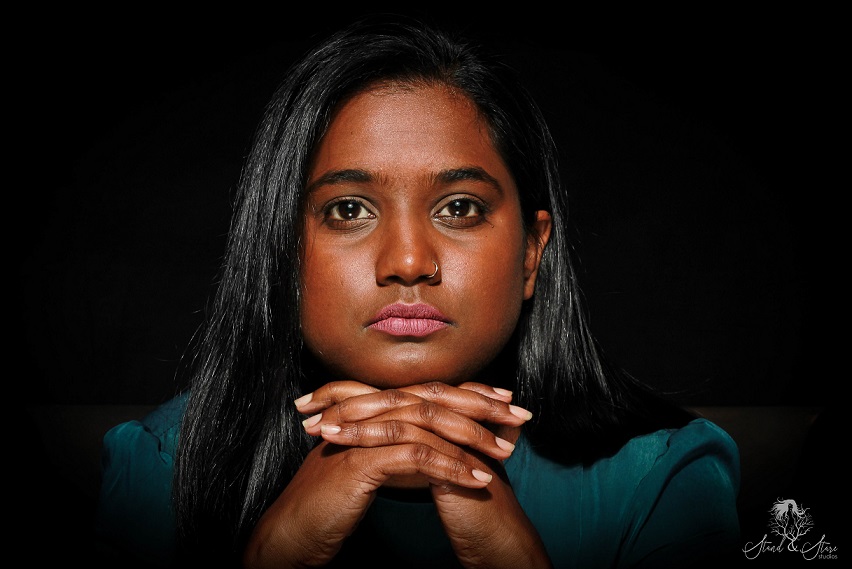
“I have always struggled to understand why my skin colour defines me and my importance to others. Society has labeled dark skin Indian girls as ugly and because of this I’ve suffered hardships that no teenage girl should. Walking down school hallways, I’d hear ‘black witch’ being called down the passage. A special Valentine’s assembly turned into a nightmare by a gift of BLEACH.” - Eleanor
Every person of Indian descent, fair skinned or dark-skinned experiences some version of colourism, from actively trying to be lighter in complexion, to valuing your fairness as an asset to be treasured. Colourism’s insidious ideology that we have taken as fact for so long informs our actions both subtly and overt, but it does affect how all of us see skin colour and how we in turn, see ourselves.
WATCH NEXT:
Colourism has a tragic origin, stemming from the caste system in India and its colonialist past, to the compounded effects of apartheid. Historically as an Indian I can not ignore the role the caste system back in India had to play in how our forefathers saw complexion. The caste system divided society according to labour with the upper castes performing more intellectual roles and the lower castes the menial ones. As a result, the upper castes were wealthy and educated and lived a life sheltered from physical hardship. By contrast the lower castes were poorer, uneducated, and fulfilled the role of manual labourers and those that worked the fields and, as a consequence, got darker in complexion under the grueling tropical sun.
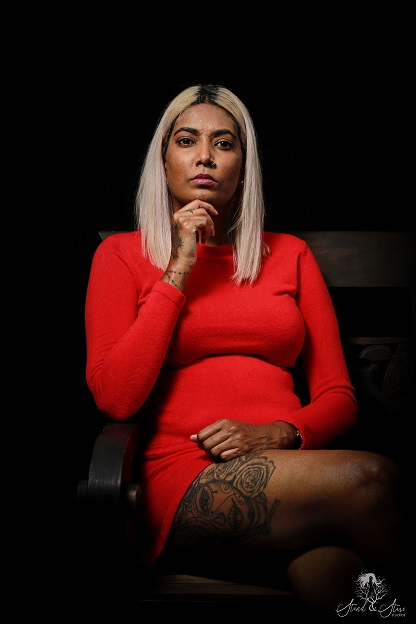
"My sister and I look the same with one exception. She’s fairer. She was thought to be the prettier one down to complexion alone and it paved her way to a smoother, easier life." - Valencia
Under British colonialism preference was given to “fairer natives’ in the belief that the lighter skinned Indians were more civilized. Under British rule light skin colour came to be associated with the ruling class, power and desirability. Now if we take the thinking formed by ideas on the caste system and then add in our colonial past and the effects of apartheid where one’s proximity to whiteness determined one’s worth, it’s clear to see that the issue of colourism has been brewing for a long time in our collective subconscious. These ideas of colour and worth have been passed down through the generations.
The disturbing fact is that Indian people today do not realise that the prejudice they hold is a form of internal colonisation. We need to decolonize our minds.
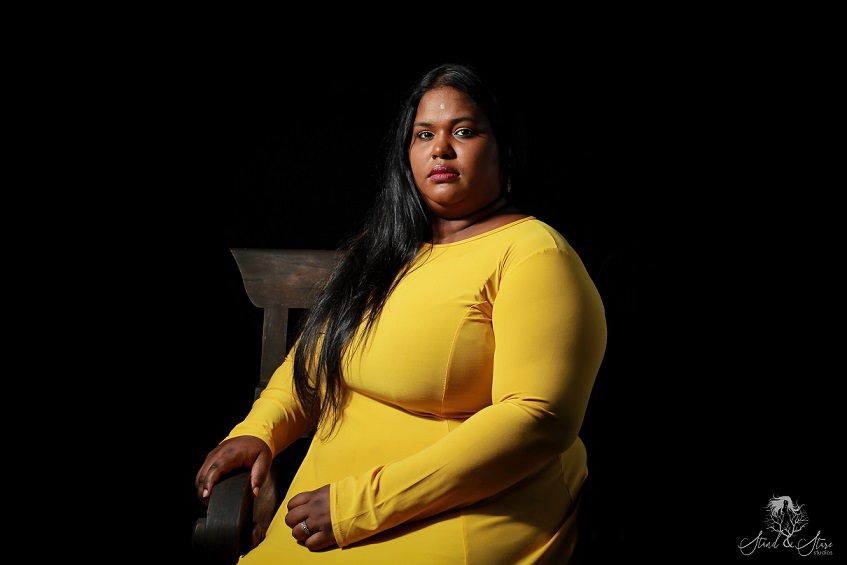
"There are different rules for those that are dark. We don’t have the benefits of being thought of as beautiful or considered attractive. Even if you are complimented it’s usually a barbed insult: pretty, for a dark girl." - Deneka
The project consists of a series of portraits of people who have shared their stories, with each person depicted as strong, bold, and almost confrontational as they emerge from the darkness that surrounds them. I chose to play with shadows and light as a metaphor for the way we think and how we are pulled in many directions.
____
Network & collaborate with Tamil Changemakers from around the world. Request to join our private LinkedIn community here.
Community Benefits
-
Connect with diverse Changemakers from the global Tamil community who are making strides in their chosen career paths
-
Inspire one another through the exchange of ideas, resources and unique opportunities
-
Access exclusive content, events & courses
____
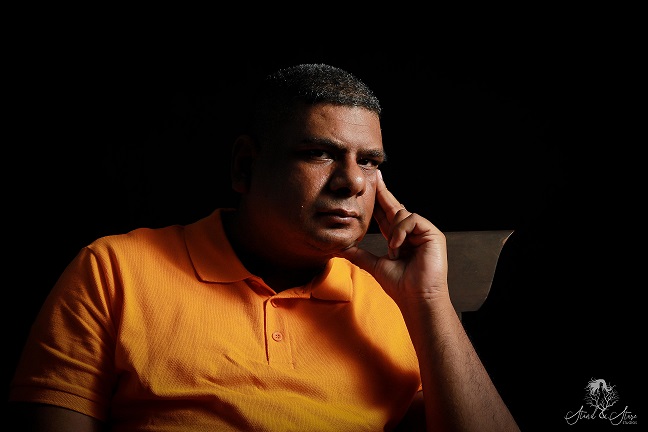
"As a child we would group ourselves into teams to play soccer. For some reason it would always be Hindi Vs Tamil. Which coincidentally was fair skinned versus dark skinned. We pitted ourselves against each other in a way that is true to life." - Yogashen
Colourism affects how every Indian person thinks about themselves and their sense of worth. Light skinned or dark the values we attach to complexion influence both our identity and actions and we all have a story to share.
**Looking to create your love story? Join the other couples who have dated and got married through myTamilDate.com!***
"myTamilDate Love Story: Jenani & Nav Found Each Other At The Right Time And Right Place In Life"
"myTamilDate.com Love Story: Tharshi & Ravi Found Love During Lockdown"
"How France Met Canada: A MyTamilDate.com Love Story"
***CLICK HERE to listen to us on Spotify!***
Related Articles:
- "The Tamil Creator Podcast (EP #50): Thad Jayaseelan - Jet-Setter, Budding Entrepreneur & Go-To Barber For Athletes & Celebrities Like Drake And Big Sean"
- "The Tamil Creator Podcast (Ep.49): DJ Kow - Trailblazing & Popular Toronto-Based Female DJ"
- "The Tamil Creator Podcast (Ep.48): Gobinthiran Kulendran - 9 Schools And 21 Location Changes During A War Couldn't Stop This Entrepreneur From Finding Success"
- "The Tamil Creator Podcast (Ep.47): Mathusha Senthil - Founder/CEO of Sex Toy Company (Thaen Pot) & Media Platform (Thaen X)"
- "The Tamil Creator Podcast (Ep.46): Ruban Kanapathippillai - Serial Tech Entrepreneur With Two Exits Collectively Over $1 Billion"
- "The Tamil Creator Podcast (Ep.45): Sharon Bala - Award-winning & Bestselling Author of "The Boat People""
- "The Tamil Creator Podcast (Ep.44): Vas Saranga - Canadian Actor, Writer & Entrepreneur (TheOnlineActor.com)"
- "Award-Winning Tamil-American Author And Educator SJ Sindu, Releases Second Novel Called "Blue-Skinned Gods" That Explores Identity, Faith, Family & Sexuality"
- "Serial Entrepreneur Vinoth Kumar Created Singapore-Based App ABL-ify To Remove Stigmas Around Autism In Asian Communities"
- "Boston-Based Suba Suntharalingam Overcomes Challenges As An Immigrant To Start Non-Profit Providing Opportunities For The Wounded, Widows and Orphans of War In Sri Lanka"
- "Elite Athlete, Coach, Future Chiropractor & Entrepreneur Abirami Shanmugaratnam Is Making Waves In The Athletic Performance Industry"
- "Toronto's OG Food Writer Suresh Doss Is Using His Reach And Voice To Help Engineer A Comeback For Beleaguered Restaurant Industry"
- "Ballet And Kung Fu Trained Australian Actress & Writer Rubi Balasingam Is Promoting Tamil Voices In Aussie TV And Film"
- "Yathusha Kulenthiran's Marketplace For Environmentally Sustainable Palmyra Products Empowers Female Artisans In Sri Lanka"
- "Australian-Tamil Entrepreneur Sujan Selven Is Creating Economic Opportunities For Remote Villages In Northeast Sri Lanka Using Upcycled Devices & Improved Connectivity"
- "Crypto Tinhorn & Former Journalist Anand Venkateswaran Talks About Buying A $69M Digital Art Piece, Collecting Stories & Catalyzing Change"

























